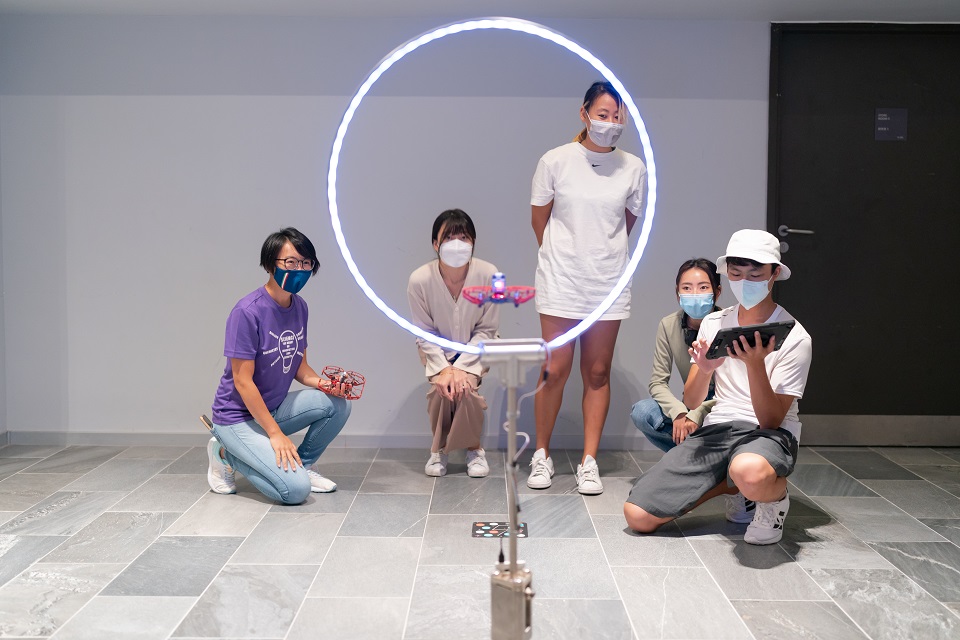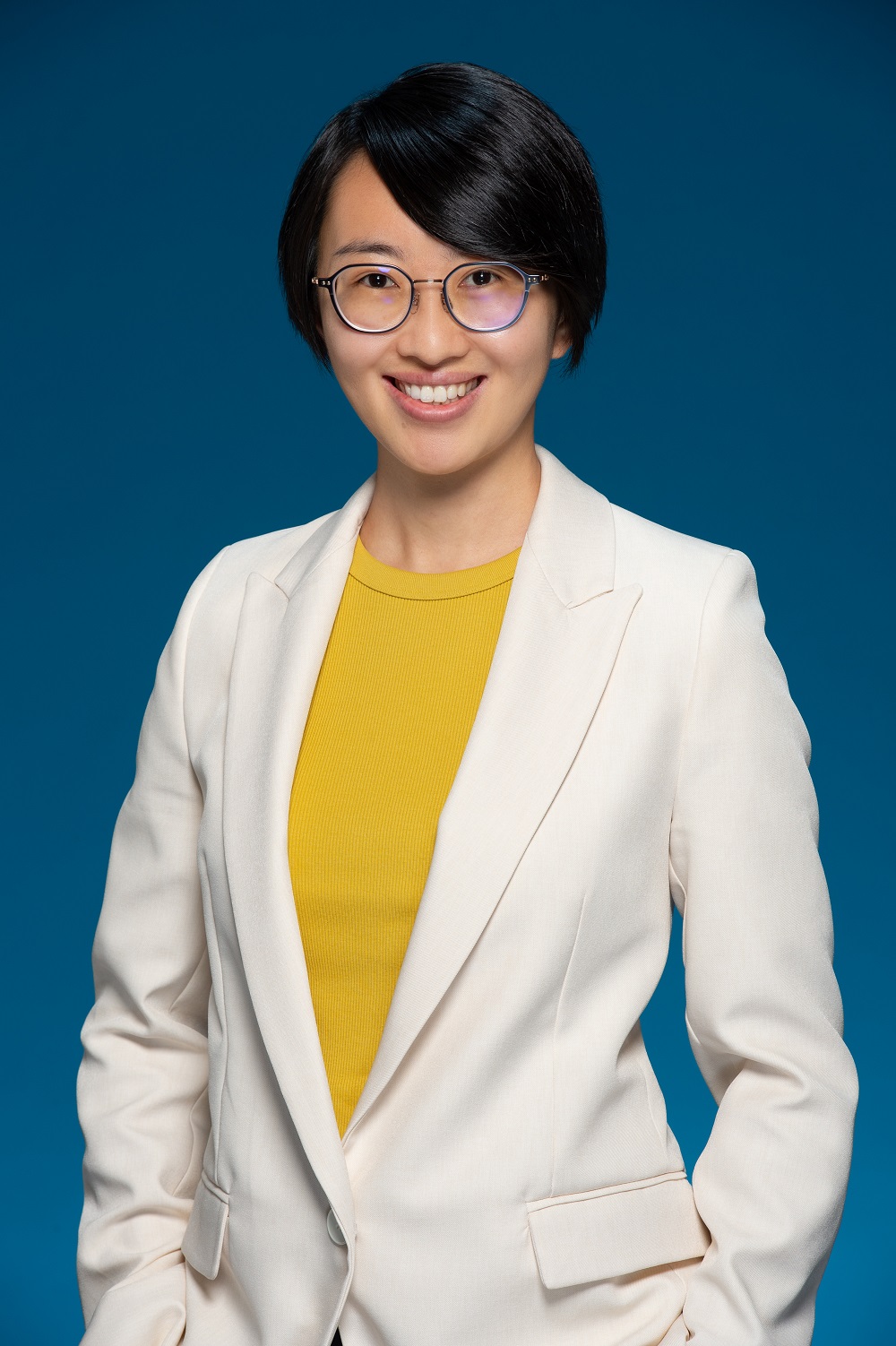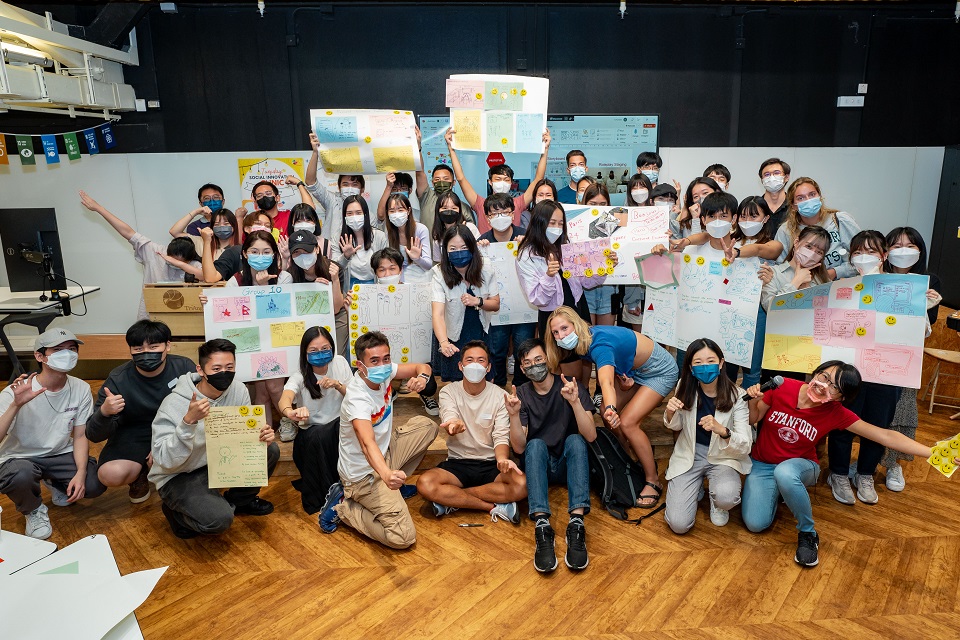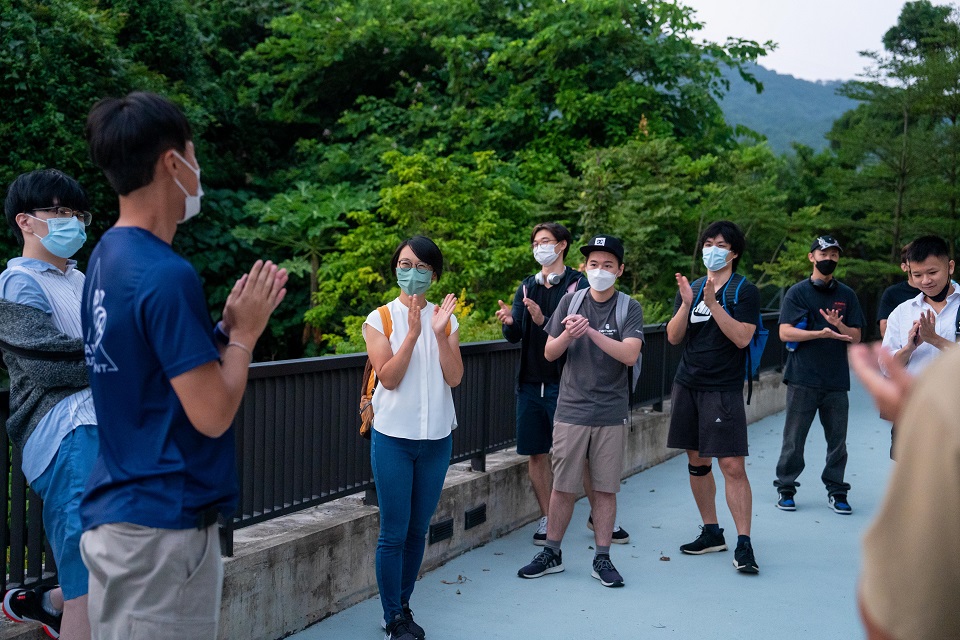Discover HKBU
A creative, cross-disciplinary approach to spark curiosity
30 Mar 2023


“Interesting”, “rewarding” and “insightful” are some of the words Dr Kristen Li’s students used to describe her General Education (GE) classes. Her adaptable teaching style has not only engaged the class intellectually and promoted active learning, but also brought positive impacts to students beyond the classroom.
Dr Li has pioneered four innovative GE courses, including a foundational course, two interdisciplinary courses and a capstone course. A dedicated teacher, she has recently won the Honourable Mention award in the Individual category at the General Education Teaching Award, which recognises faculty members’ outstanding performance in teaching GE courses.
Driving cross-disciplinary learning
What shaped Dr Li’s teaching is her own experience at HKBU as a postgraduate student. She says that she benefited greatly from the cross-disciplinary education at the University, particularly through a joint programme co-organised by HKBU and Kyoto University in Japan which centred around informatics and design thinking.
“PhD students usually are single-minded in pursuing their areas of study. The programme opened my eyes to different perspectives, and how as a computer scientist I can contribute to solving social issues,” says the lecturer of the Department of Computer Science. “This experience pushed me to incorporate cross-disciplinary teaching and learning in the classroom, and to enhance the interactivity among the students, myself and society.
Learn with your peers, learn from your peers
For Dr Li, GE courses provide a space to drive cross-disciplinary learning while empowering students to develop creative solutions that can address real-world issues. “Students taking GE courses major in different disciplines, and my role as a teacher is to help them learn from my areas of expertise as well as from each other,” she says. “When the students from different academic backgrounds work together on projects, it enables them to gain new perspectives and learn how to solve problems in a cross-disciplinary approach.”
In her capstone course “Design for Smart City: Towards a Sustainable Living”, she guided a student team to develop an app prototype that uses artificial intelligence (AI) technology to improve the transparency of wheelchair accessibility on public buses. The team, which comprises Social Sciences undergraduates, proposed installing sensors on buses to detect the usage of the designated space for wheelchairs. This will help inform wheelchair users, who are waiting for the bus, of the available space on the approaching buses and allow them to better plan their journeys.
Dr Li says: “Although not all the students have a background in information technology, they could integrate the knowledge from their own disciplines and the technical skills I taught to deliver smart solutions for a sustainable city. They were able to try something new in their projects, and along the way, they’ve also made new friends.”
Teaching beyond theories


In class, Dr Li always tries to engage her students through interactive activities to ignite their interests about the course topics. In the foundational GE course “Life is a Game; How to Win?”, she has devised a series of games simulating real-life scenarios to challenge the students to learn about game theory and its applications in everyday life.
To foster active learning, her course “To Fear or Not To Fear: The Coming of AI and What It Means for Our Communities” is conducted in the format of debates, as a way to encourage students to examine topics around the AI revolution while giving them the opportunity to work in a collaborative setting.
In addition, she takes her students out of the classroom for experiential learning activities, including field visits and hands-on experiences such as drone programming workshops. In the course “Design Thinking and IT Empower Social Innovation”, she works with community partners to host a series of design thinking workshops and guide students to apply technology and design thinking approaches to solve problems in society. To further enrich students’ learning experience, she has invited industry leaders to hold sharing sessions and provide their insights into innovative applications in various sectors.
Dr Li also utilises technology, including the virtual whiteboard Mural and metaverse platforms to create digital learning spaces which allow students to discuss and work on projects remotely. “The students really enjoyed using these technologies to collaborate and interact socially. They can follow each other’s progress as well, making the virtual space a peer-learning environment,” she says.
A teacher who is also keen to learn herself, she took part in the Students-as-Partners Scheme and the GE Peer Support “Buddy” Programme launched by the General Education Office. She appreciates these initiatives which can facilitate empathy and understanding in an education setting, while supporting teachers to deliver the best student experience.

